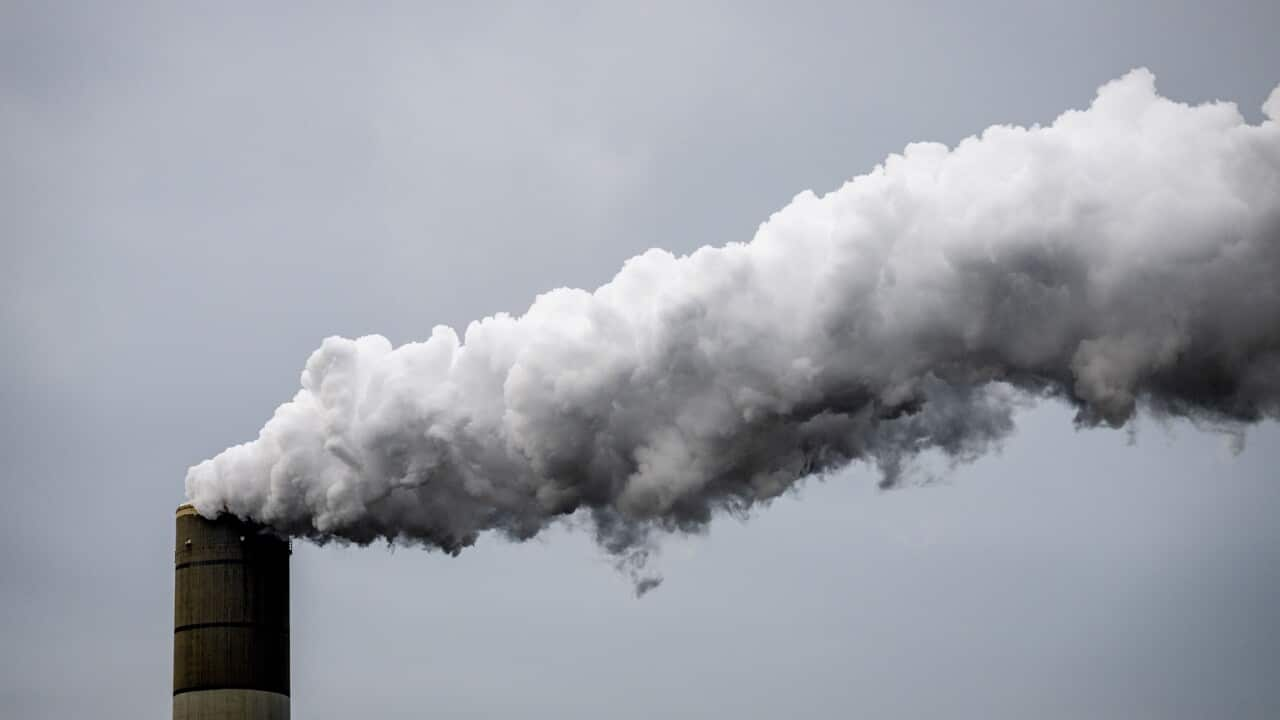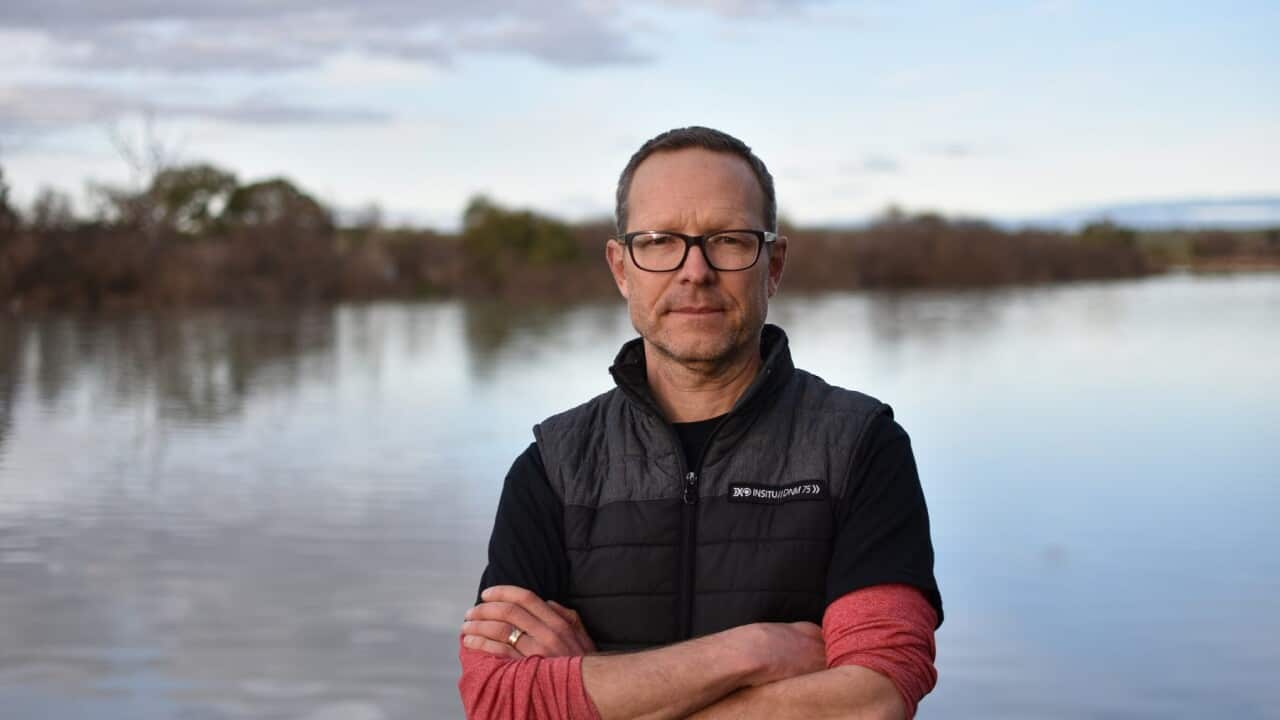Listen to Australian and world news, and follow trending topics with SBS News Podcasts.
TRANSCRIPT
For each of the past few years, scientists, analysts and officials have been hoping that 2025 would be the year when emissions from the burning of coal, oil and natural gas would stop going up.
They’ll have to wait another year.
Scientists told the COP30 climate conference in Brazil that emissions from fossil fuels rose 1.1 per cent in 2025.
University of Exeter scientist Stephen Sitch is a member of the Global Carbon Project, which uses data from around the world to calculate the yearly emissions figure and publishes it in two scientific journals.
“So we are projecting in 2025 growth in emissions of 1.1%. And that's coincidentally the same as in 2024. And that compares with a 0.8% per year increase over the last decade, 2015 to 2024. There is some good news there because the previous decade, 2005 to 2014, we had increases of 2%, so it's one percentage point difference.”
A second report from a different scientific group examined how much warming the world is on track for, given this year’s carbon emissions and governmental policies.
The report by Climate Action Tracker shows the last four years of climate fighting efforts haven’t much changed projections for a hotter future.
Bill Hare is one of the report's authors:
"As our current policy update shows, the temperature outcome's been pretty flat for four years, reflecting a lack of action by countries pushing us towards 2.6 degrees of warming, which will literally cook the planet.”
They also discussed the impact of the United States’ withdrawal from the Paris Agreement in 2015, adding that its exit has slowed global momentum toward reducing greenhouse gas emissions.
Ana Missirliu from the NewClimate Institute says that can't be underestimated.
"The U.S. withdrawal from the Paris Agreement has had really devastating effects and weakened the global momentum. And I think we are still seeing I mean, I think it's the tip of the iceberg where we are just seeing the, the impact of it, but I think it's not fully reflected in the numbers yet.”
The planet's annual temperature jumped by just under a half of one degree Celsius since 2015, which is one of the biggest 10-year temperature hikes on record
This year is expected to be either the second or third hottest on record.
Each year since 2015 has been hotter than the year of the Paris climate deal.
Bill Hare says politicians are failing to address the issue:
"The 1.5 degree limit is the heart. It's a legal touchstone of what all countries need to be aiming for here. And in this update, we've shown that the 2035 NDCs (Nationally Determined Contributions), which was meant to be the showpiece of this COP, of COP30, 10 years after Paris, have not closed the gap to 1.5 degrees. In fact, the uncomfortable truth is that that gap has got bigger. And I would say that closing this gap is a central political issue at this COP. And I think unless that's addressed, we all ought to be asking questions about what countries are really doing here.”
However, the scientists say some progress has been made.
Despite rising emissions, renewable energy is expanding rapidly and will help offset emissions.
Renewable energy is now cheaper in most places than coal, oil and natural gas.
Last year, a UN report revealed 74% of the growth in electricity generated worldwide was from wind, solar and other green choices
In 2015, a half-million electric vehicles were sold globally - last year it was 17 million.
The New Climate Institute's Niklas Höhne says not all hope is lost.
"So even though our temperature estimates have not changed, there has been quite a lot of change underneath. Yeah, some positive trends, some negative trends. And from on the higher level, the negative trends are that greenhouse gas emissions still are rising. So last year has been higher than the year before. And estimates are that this year will also be higher than the year before. So recent emissions are going up. But at the same time because of the... yeah, exponential expansion of renewables, we now think that after global emissions have reached a peak, we can reduce much, much faster, to reach low emission levels because renewable energy is expanding exponentially.”













